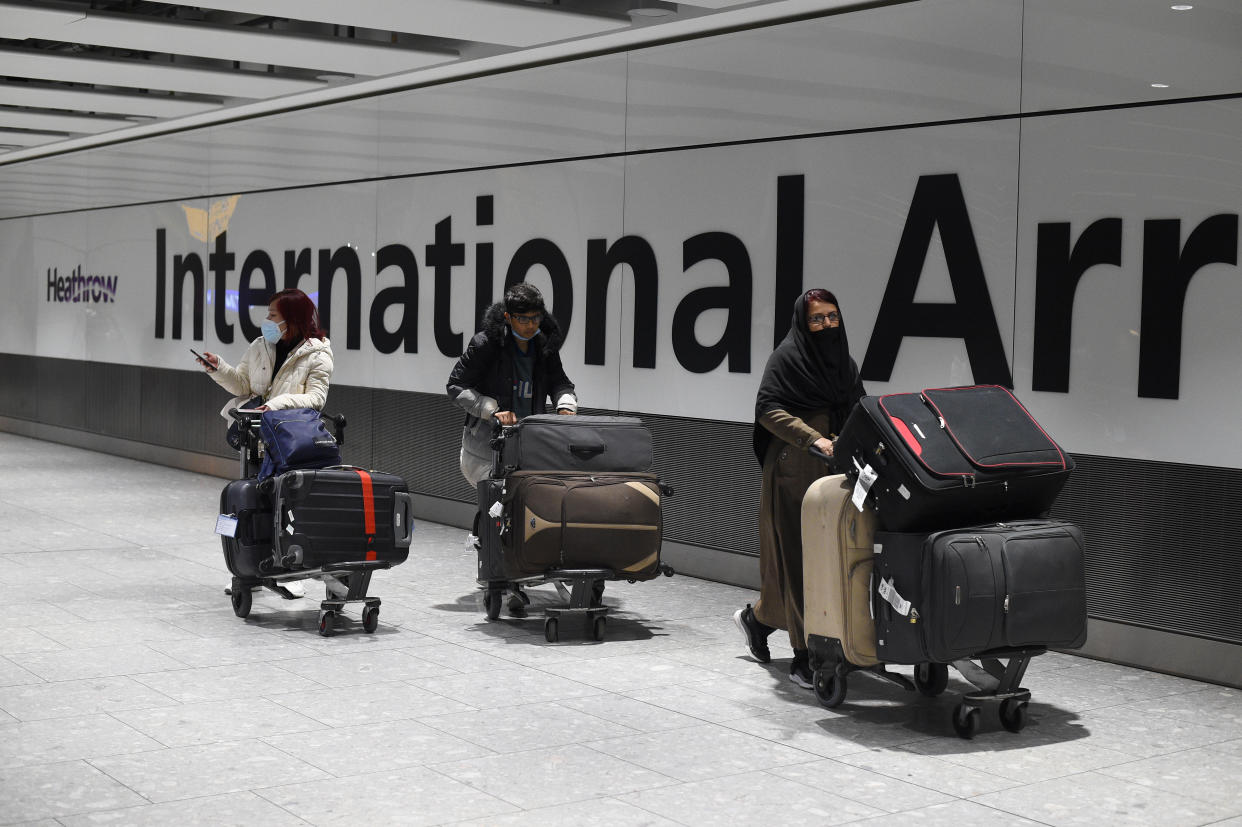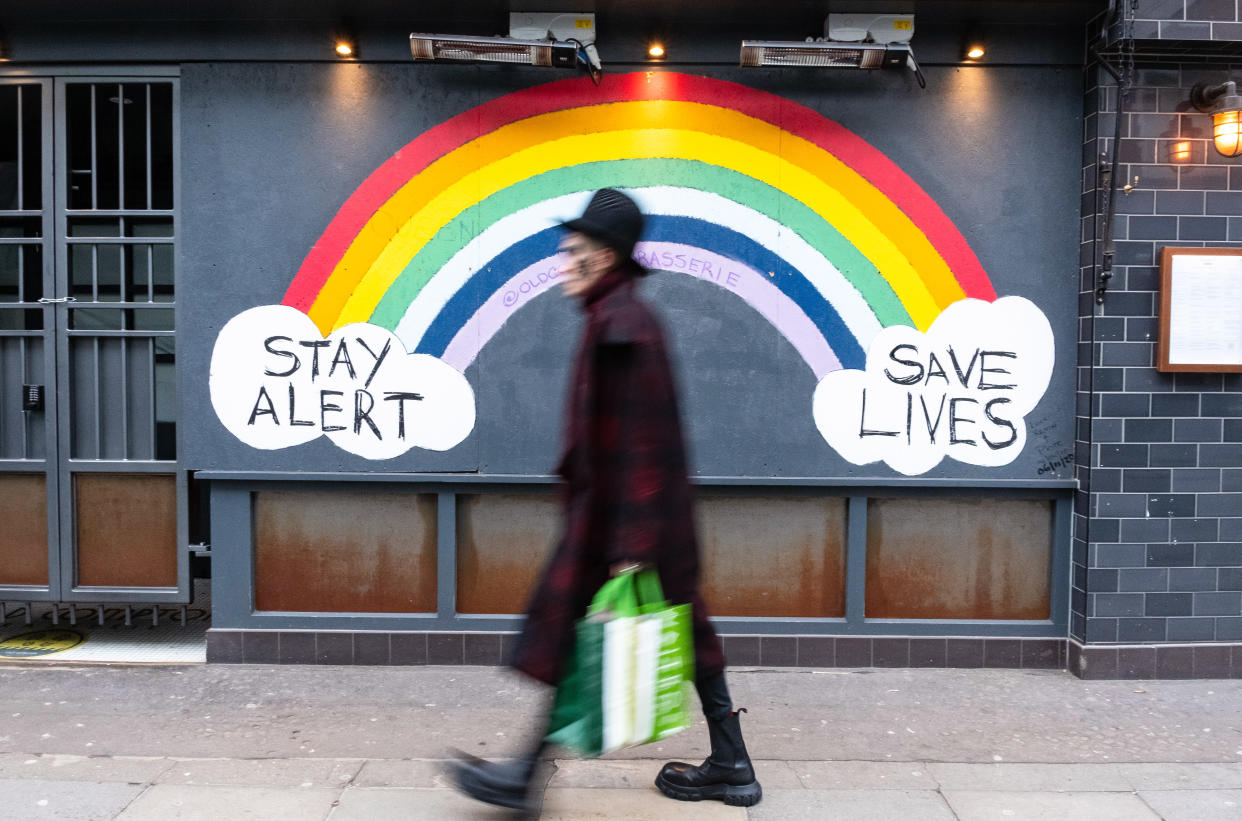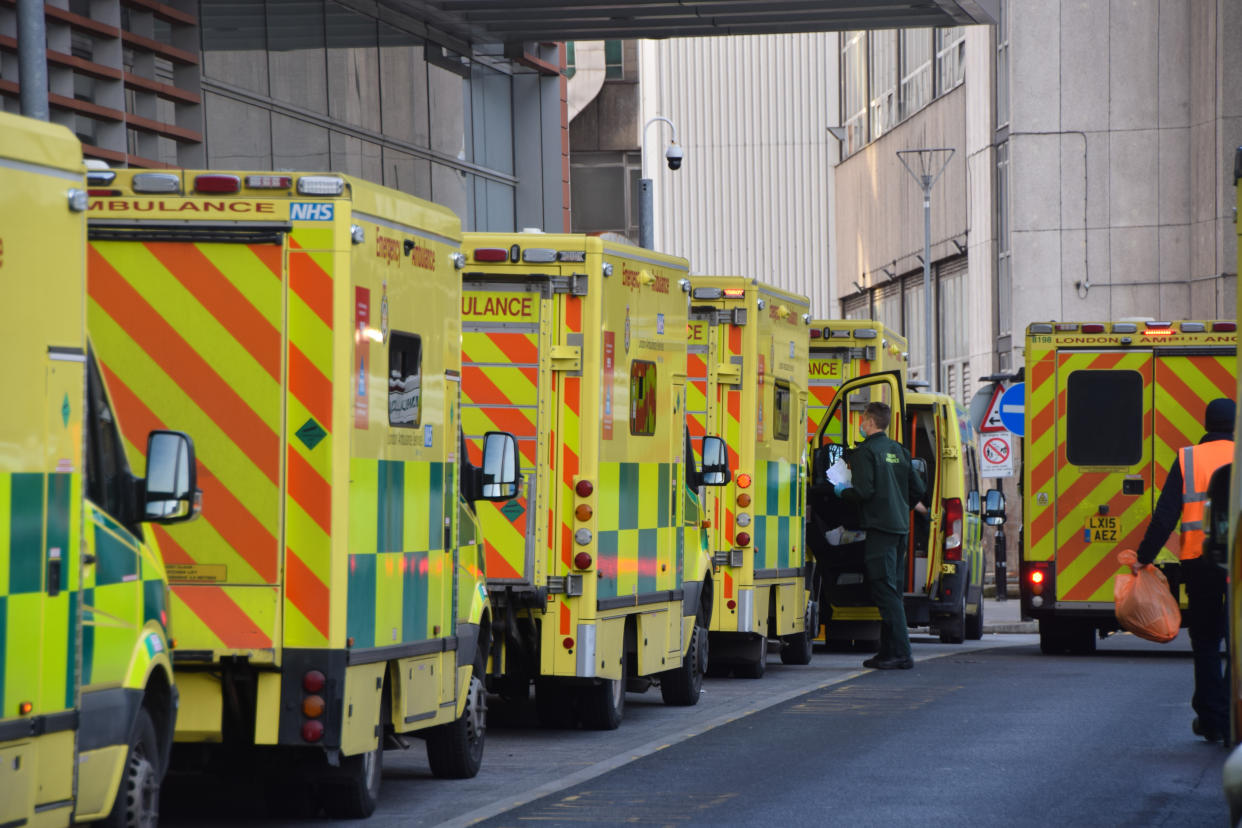'Almost impossible to stop virus variants,' says expert

Shutting down the country to prevent the arrival of highly transmissible new strains from abroad is “almost impossible,” a top scientist has said.
Professor Sir Mark Walport, former chief scientific adviser to the government, told Times Radio that the perfect scientific solution would be to close down all borders but this is challenging for a major global hub like the UK.
It comes after at least eleven cases of the mutated South African strain were identified in areas such as Surrey and west London over the past week with no links to travel.
Boris Johnson announced on Wednesday that limited hotel quarantine measures for travellers from 30 “high-risk” countries would be introduced in an attempt to stop them from spreading potentially “vaccine-busting” new strains.
But reports have since emerged that the Scientific Advisory Group for Emergencies (Sage) had advised Downing Street a week earlier to do more as “geographically targeted travel bans” would not be enough to stop the arrival of new variants.
The scientists said the only way to “get close” to stopping the variants was to close the borders completely or introduce mandatory quarantine measures for everyone entering the UK, according to The Times.
Shadow home secretary Nick Thomas-Symonds, said the revelations about Sage's advice were "incredibly serious" as the government has so far not acted on it.

“Ministers have knowingly left the UK border open and potentially exposed people to new strains of the virus, in direct contradiction of their own government scientists’ advice," he said. "This puts the gains of the vaccine at risk, with disastrous consequences for people’s lives.”
With the quarantine measures still up in the air, Labour has been urging the government to make a decisive decision on mandatory isolation periods.
Universities minister Michelle Donelan said on Tuesday that health secretary Matt Hancock would be updating parliament “within the week” on plans around hotel quarantine.
Asked what the reason is for a delay in bringing the policy in, she told BBC Breakfast: “I don’t think there’s a delay. There wasn’t a timeframe set originally as to when we would announce this.
“We announced the intention of this last week in conjunction with other initiatives that we’re doing, including banning travel from other countries, and the details will be announced.
“It is a logistical effort as well, as you will appreciate, and so it all needs to be laid out properly and the health secretary we’ll be doing that.”
She insisted the government had not acted too late in taking action against the South African variant.
Donelan also said a hotel quarantine for all countries – reportedly something which might be announced in Scotland – would be "unfeasible".
She said: "We have to be realistic about what we adopt and what we do, and what is deliverable as well, and also targeted in our approach to making sure that we minimise the risk and identifying those countries where we can see the risk.
"So, a blanket policy that Nicola Sturgeon is proposing would not necessarily be as effective as the one that we are suggesting, and also it's much more doable."
Asked about border closures, Sir Mark told Times Radio: “There is the scientific perfect answer, and then there’s the answer that policymakers will come to, which is sort of practical and achievable.
“The simple answer is, if you want to stop new variants coming to the country then you have to do everything you can to reduce travellers and isolate them as they come across the border.

“The challenge for a country like the UK, which is a major global hub where for our resilience we depend on supplies from all over the world, is whether it’s practical to actually achieve that.
“I think, realistically, most people would feel that, whilst one can delay the coming in of new variants of viruses from around the world, it’s almost impossible to completely close down a country and prevent that happening if there is a very highly transmissible variant.”
Professor Peter Horby, who chairs the government's New and Emerging Respiratory Virus Threats Advisory Group (Nervtag), recently said that certain measures could help slow down the spread of new strains but would not completely stop them moving around.
Hornby told BBC Breakfast that data from other countries such as Brazil and South Africa suggested other variants were more resistant to vaccines but that it was "still early days".
He said: "The variants are a concern... I think complete control of variants moving around the world is going to be almost impossible but we know that certain measures can slow the movement of these viruses around the world.
"Certainly measures like stricter quarantines and putting people in hotels for long periods will have an impact and it's up to the government to decide whether they think the imposition of those is worth the benefits they're likely to see."
Horby added that the UK would be safer "from a scientific point of view" if more measures were put in place.
Watch: Hancock: UK must ‘come down hard’ on South African variant


